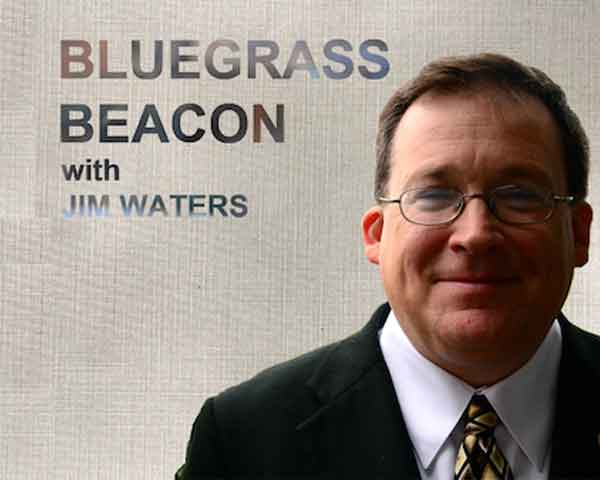Bluegrass Beacon: School choice will help ‘step up’ Kentucky’s education game
By JIM WATERS
Bluegrass Institute for Public Policy Solutions
Thursday, April 8, 2021 — Since COVID-19 arrived, measures to expand educational freedom and opportunity have been introduced in more than half the states in America – many of which already had some form of choice, including neighboring Indiana, where lawmakers expanded eligibility for an existing school voucher program and created a new education savings account policy for special-needs students and children from military and foster families.

Another of Kentucky’s neighbors, West Virginia, just enacted the nation’s most expansive school choice program.
Kentucky lawmakers overrode Gov. Andy Beshear’s veto of legislation giving Bluegrass State parents both public and private options.
It allows students to enroll in public schools outside their home district, with the state portion of funding following the child.
The bill also creates privately funded education opportunity accounts which can be used by parents to purchase educational services for their children, including private school tuition in Kentucky’s eight largest counties.
While these new state measures are, as Lindsey M. Burke, Ph.D., director of the Center for Education Policy at the Heritage Foundation, writes, “a swift rebuke to the teachers unions, who have not only stood in the way of education access by locking school doors during the pandemic, but have been the primary obstacles to education choice for decades,” they also can provide incentives for public school officials to respect and respond to parents’ concerns regarding their children’s educational needs.
Having such choices would have mattered during this pandemic, says Laura Lin, mother of two daughters in Jefferson County Public Schools (JCPS).
“I do think they would have had to listen to the parents more,” said Lin. “It creates competition; they would have to step up their game.”
As an example, Lin points to the decision by the JCPS school board to reopen only two days a week to in-class learning instead of the full, five-day schedule urged by parents.
“The two-day week deal was clearly only to satisfy the unions and bureaucrats so they could still get funding,” Lin said. “It infuriates me to no end the added stress they put the teachers and parents under by making that decision.”
For Lin, the decision disrupted her youngest daughter’s learning pod created by families bringing five children together and pooling resources to pay for an instructor to guide the students through JCPS’ online program and its associated homework.
While her youngest thrived from socializing and interacting with other children – “it had a huge (positive) effect on her learning,” Lin says – the pod became defunct when JCPS opened for in-class learning two days a week.
Since the system staggered students’ in-class schedule so that not all kids attended the same days it made continuing the pod impossible as “it wasn’t worth it monetarily for the teaching assistant,” Lin explains.
Meanwhile, her oldest – who’s 14 and a gifted-and-talented freshman in JCPS – has struggled mightily with a setup overwhelming for her, especially since she was new to high school.
“It was and is still very hard for me to tell what schoolwork she’s missing,” Lin said about JCPS’ setup for her older daughter. “My child is failing in some classes that I’m completely blind to.”
Critics of school choice feign concern about how private schools won’t be held accountable if Kentucky parents can access financial help to get their children into a learning environment that best fits their needs.
However, those same opponents seem to offer little or no interest in holding a public system accountable which has failed thousands of students during COVID-19.
If private or parochial schools dependent on parents choosing them for their children’s education don’t respond in a timely fashion or fail to satisfy expectations, students and dollars go elsewhere.
That’s the ultimate form of accountability, which now should help schools in a struggling public system “step up their game.”
Jim Waters is president and CEO of the Bluegrass Institute for Public Policy Solutions, Kentucky’s free-market think tank. Read previous columns at www.bipps.org. He can be reached at jwaters@freedomkentucky.com and @bipps on Twitter.
-30-





